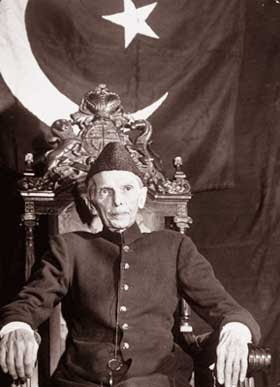Firstly, the founding fathers believed that Western democracy (of which secularism is a corollary) played a very important role in history but had failed by the early decades of the twentieth century (Iqbal’s observations about the “reaction against democracy in England and France” have already been shared in some recent posts of this newsletter. Quaid was of the same opinion as will be seen here).
Secondly, if Western democracy had failed, obviously the world needed fresh input for the sake of freedom, equality and liberty. This fresh input, according to the founding fathers, was an “Islamic state”.
The following is one of the dozens of statements of Quaid which can be used for understanding the two above-mentioned points:
In Pakistan we shall have a state which will be run according to the principles of Islam. It will have its cultural, political and economic structure based on the principles of Islam. The non-Muslims need not fear because of this, for fullest justice will be done to them, they will have their full cultural, religious, political and economic rights safeguarded. As a matter of fact they will be more safeguarded than in the present-day so-called democratic parliamentary form of Government. (Bombay, February 1, 1943; quoted in Secular Jinnah and Pakistan by Saleena Karim on p.136).The third reason was that the people wanted it (minus, perhaps, “the intelligentsia and the so-called educated”). Liaquat Ali Khan stated it best when he told an American audience in 1950:
We do not have to present this ideology to our people as a new manifesto. The principles I have stated are part and parcel of Islam and when we say that we want to follow the Islamic way of life what we mean is that we could not possibly do otherwise. (N.B. This quote is not from Saleena Karim's book).By the way, if one thinks that only Muslim masses wanted this “Islamic state”, one is in for some surprise in Saleena Karim’s book – especially in Appendix II, ‘Non-Muslims on Jinnah and Pakistan’. The letters written to Quaid by a Lahore-based native Christian woman and from a Hindu in Darjeeling are eye-openers.
Just to check how much you know about Pakistan, try making a guess which prominent Pakistani Christian wrote the following words – as late as November 1977:
If you have looked at the basic doctrine of Islam, its truth and strength-in-simplicity, the potencies for growth, spiritual integrity for the individual, outward and visible power through unity for the community, that are built into its rituals of namaz [prayer], the fast and the pilgrimage, which are still being extensively practiced, the reason for the current of Islamicization [“Islamization”] in Muslim countries, that have re-sensed their identity and place in the World, will become apparent.Yes, these words were written by a Pakistani Christian who was one of the most prominent public figures in our history. Turn to pp.261-2 of the book to find out who was he (and hopefully, there will be more about him in some future post of this newsletter).

5 comments:
JazakAllah Khurram sahib, It was very enlightening. The problem arises when we look at Islam from the narrower perspective, which I believe has nothing to do with islam, and which sadly has overtaken over intellectual senses. We miss the principals and focus on some mere incidents which took place in the context of those times.
all very well, what Jinnah, Iqbal and Liaqat ALi Khan, wanted, envisaged and the christian and hindu women who believed that under and Islamic state they would live with dignity and security. However, as of what has happened not just last week, but all along, progressively over the last two decades, the poor christians, have niether peace, nor dignity, nor security. And those who stand up to defend them are gunned down as we have observed. So unfortunately our experiment with the ideal Islamic State within Pakistan has failed. Whether we will rise from the ashes and restore ourselves and be true to Islam is to be seen.
I feel it can only be done, if the seeds of tolerance begin to be planted now so that we can see the results in a peaceful, secure, honourable Pakistan after another thirty years or so. Only if..........
Greetings,
Thank you for this brief, though fascinating, article. It dispels so many common perceptions that are popular nowadays. A belief, once held, that such a nation could exist, shows that it could again occur.
All good wishes,
robert
The Qaid e Azam,Mr. Liaquat Ali Khan and Iqbal dreamed of a country,which would be called an Islamic state.This state will have its cultural,political and economic structure based on the principles of Islam.
They also emphasized the fact that the non-muslims had nothing to fear,their rights will be safeguarded.
If we have failed to carry on the work of these great personalities,it is not because it was something that could not be done but we failed to look within ourselves and do our duty.
However,we cannot blame the muslims alone,this trend of treating people different from us because of their religious background has been prevalent all throughout history.
Our job although not that difficult can be done,once we collectively try to follow the guidelines that is presented to us by our founding forefathers.We have been reminded in the teaching of Iqbal time and time again we must do things collectively in order to be successful.
Post a Comment